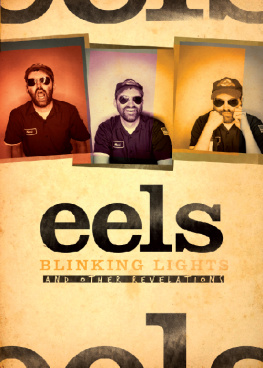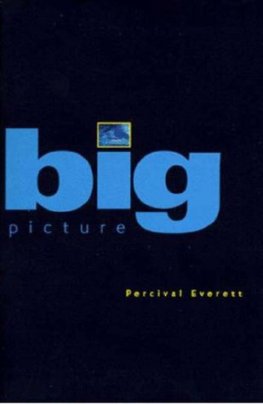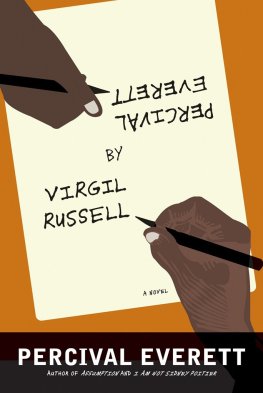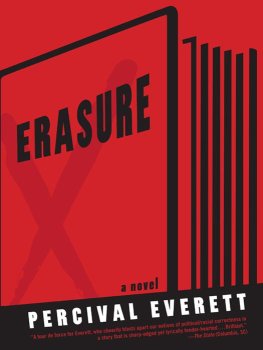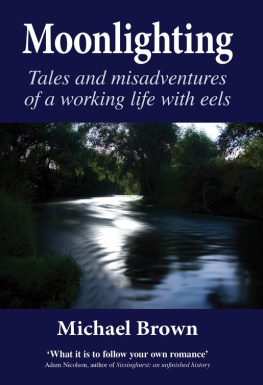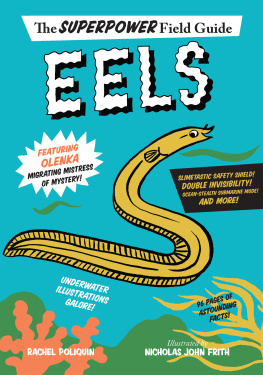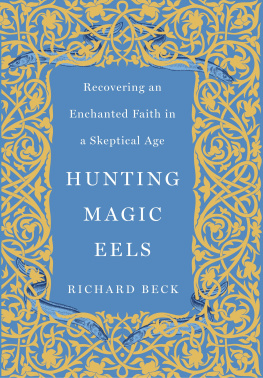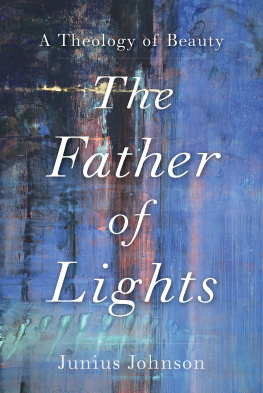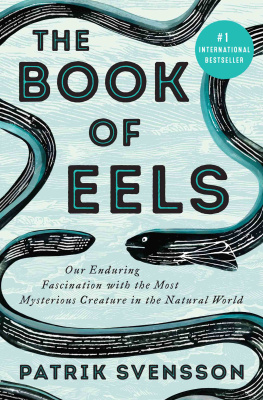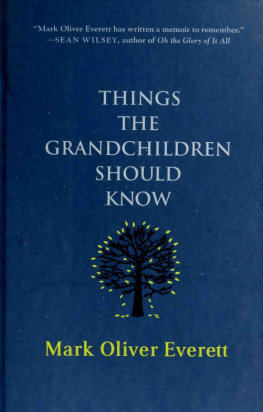Acknowledgements
I first have to thank David Barraclough at Omnibus, who made my dream of writing a book about Eels come true.
Then, my appreciation goes out to the interview subjects contained in this book. They were extraordinarily gracious and generous with their time, inviting a total stranger into their homes, having long visits at coffee shops, or allowing me to tag along on their walks. I cannot express how much their faith and trust in me meant. Their enthusiasm about my project kept me going when times were tough.
Along those lines, I have to sincerely thank Mark Oliver Everett. E chose not to be interviewed for this book, but he very kindly gave his blessing to those closest to him to speak with me. E, your music has been a guiding light for me for many years my wish is that in some small measure this book serves as a way of paying you back for all that youve done for me and your many fans.
I would also like to thank those who had a kind word of encouragement for me when I really needed it. Those would include Gwendolyn Martin, Andy Hungerford, Jen Lopez, and Robert Abele.
More specific thanks are due to Bernhard Gmeiner, Russell Brown, Liz Wiley, Norma Jamsheed, Marissa Brooks, Brigitte Lavey, David Briggs, Kevin Gasser, and Stuart MacMillan for technical assistance and guidance. In his own category is Jason Major, who had the answer for every impossible question I threw his way. Jason is the only person I know who loves Eels as much as I do I sure hope he likes this book.
A huge thank you to Will Leitch, who has been there from the beginning. What would I do without my old friend?
I also want to publicly acknowledge Bill Holdship, a great music critic, editor and Eels fan. Bill was the first person to take a chance on a certain inexperienced young writer, and I dont think Ive ever truly said thanks for what he did for me.
Writing this book has reminded me, as if I needed reminding, how fortunate I am to have been blessed with the family I was born into. My baby sister Lisa is now all grown up with a terrific husband and four impossibly wonderful kids I dont tell her often enough how proud I am of her because, frankly, shes doing just fine without my encouragement. My parents, Bob and Debbie, have simply given me everything. (Dad, sorry about the dangling preposition at the end of the first sentence in this paragraph.)
And then theres Susan Stoebner. I love you to pieces, honey. Where should we go on vacation?
About The Author
T im Grierson is a film and music critic whose writing has appeared in L.A. Weekly, Yahoo, Screen International, Revolver, The Village Voice, Vulture, Wired, Blender and VH1.com. He is the Rock Music guide at About.com and a member of the Los Angeles Film Critics Association.
Bibliography
Books:
Heroes And Villains: Essays On Music, Movies, Comics, And Culture by
David Hajdu (2009) I Was A Cold War Monster: Horror Films, Eroticism And The Cold War
Imagination by Cyndy Hendershot (2001) Life On Planet Rock by Lonn Friend (2006)
Things The Grandchildren Should Know by Mark Oliver Everett (2008) The Many Worlds Of Hugh Everett III by Peter Byrne (2010)
Periodicals, Newspapers, Radio Interviews and Online Sites:
About.com
American Songwriter
Amplifier
The A.V. Club
Billboard
TheBookseller.com
The Boston Globe
Chicago Tribune
Clash
CMJ
The Current
Drop-D Magazine
Drowned In Sound
Drum!
Drumhead
Entertainment Weekly
The Guardian
FasterLouder
Flaunt
Flyp
Harp
The Hollywood Reporter
Hot Press
The Huffington Post
The Independent
Interview
Jonesys Jukebox
KCRW
LA Alternative Press
LA Weekly
Los Angeles Times
Magnet
Metro Times
Modern Drummer
Mojo
MTV News
Music Connection
Music Express
The New Times Los Angeles
NME
NPR
The Omaha Weekly Reader
Pitchfork
Playbill
PopMatters
Q
Rhythm
SF Weekly
Slant
Sound On Sound
Spin
Spinner
The Sunday Times
Tiny Mix Tapes
Uncut
USA Today
Vanity Fair
Variety
The Village Voice
VOX Online
Word
Studies and Reports:
Institute For Defense Analyses: Analytical Support For The Joint
Chiefs Of Staff: The WSEG Experience, 19481976
McLean Citizens Association: McLean Hunt
National Transportation Safety Board: Aircraft Accident Report, McLean, Virginia, April 28, 1977
Liner Notes:
The Who, Fragments
Websites
Official Site:
eelstheband.com
Fan Sites:
rockingeels.com
eels.nl
therockhardtimes.wordpress.com
Chapter One
H e was born on April 10, 1963 in a hospital in Washington, DC, and at least one of his parents was thrilled at his arrival. Named Mark Oliver Everett, he was the first son of Hugh Everett III and Nancy Gore Everett, who lived in nearby Alexandria, Virginia. He had an older sister, Elizabeth, whose friends called her Liz. She wasnt yet six, a large age gap between siblings, and in truth Nancy had been pregnant once before Mark, but she lost the child in a miscarriage. However, that wasnt going to stop her from getting pregnant again even if her husband was against the idea.
In a diary she kept many years later, Nancy acknowledged that Hugh didnt much want a family, but for her it was a way to validate their marriage. She clung to the hope that perhaps fatherhood would grow on him, like the pets. It was a funny way to put it, but by all accounts not entirely inaccurate. Hugh had been equally unexcited about the birth of Liz. He and Nancy were dating when she announced to him in the fall of 1956 that she was pregnant with Liz. His response was to ask her to get an abortion. Nancy countered that she was keeping the child, adding that she didnt want to get married if the only reason was the pregnancy. That November, they got married, but as Hugh Everett III biographer Peter Byrne noted, he may never have fully honoured his new brides request for their marriage to be more than just an arrangement for the child. Everett was charmed by baby Liz, Byrne writes in The Many Worlds Of Hugh Everett III, but, consumed by his career and the pursuit of leisure, he left the nurturing to Nancy. If she wanted to raise children, that was between her and Dr Spock.
The career was Scientific Warfare Analyst at the Weapons Systems Evaluation Group, or WSEG. Hugh was working for the Pentagon for a group that, according to a 1979 study prepared by Institute for Defense Analyses research analyst John Ponturo, was concerned with bring[ing] scientific and technical as well as operational military expertise to bear in evaluating weapons systems employ[ing] advanced techniques of scientific analysis and operations research in the process. Put simply, Hugh was conducting war games. In the wake of the atomic bombs dropped on Nagasaki and Hiroshima at the end of World War II, nuclear war had become a growing threat, one that the US government wanted to be on top of. Consequently, the Department of Defense (which only recently had been renamed from the Department of War) recruited physicists to calculate the extent of death and damage that would be generated by different war scenarios involving nuclear weapons.
As for Hughs pursuit of leisure, it was, ironically, a by-product of the climate in which he made his living. Because of the fear that nuclear annihilation would destroy humanity and that this would be happening sooner rather than later American culture began to embrace an anything-goes mentality around its margins. In her book,

